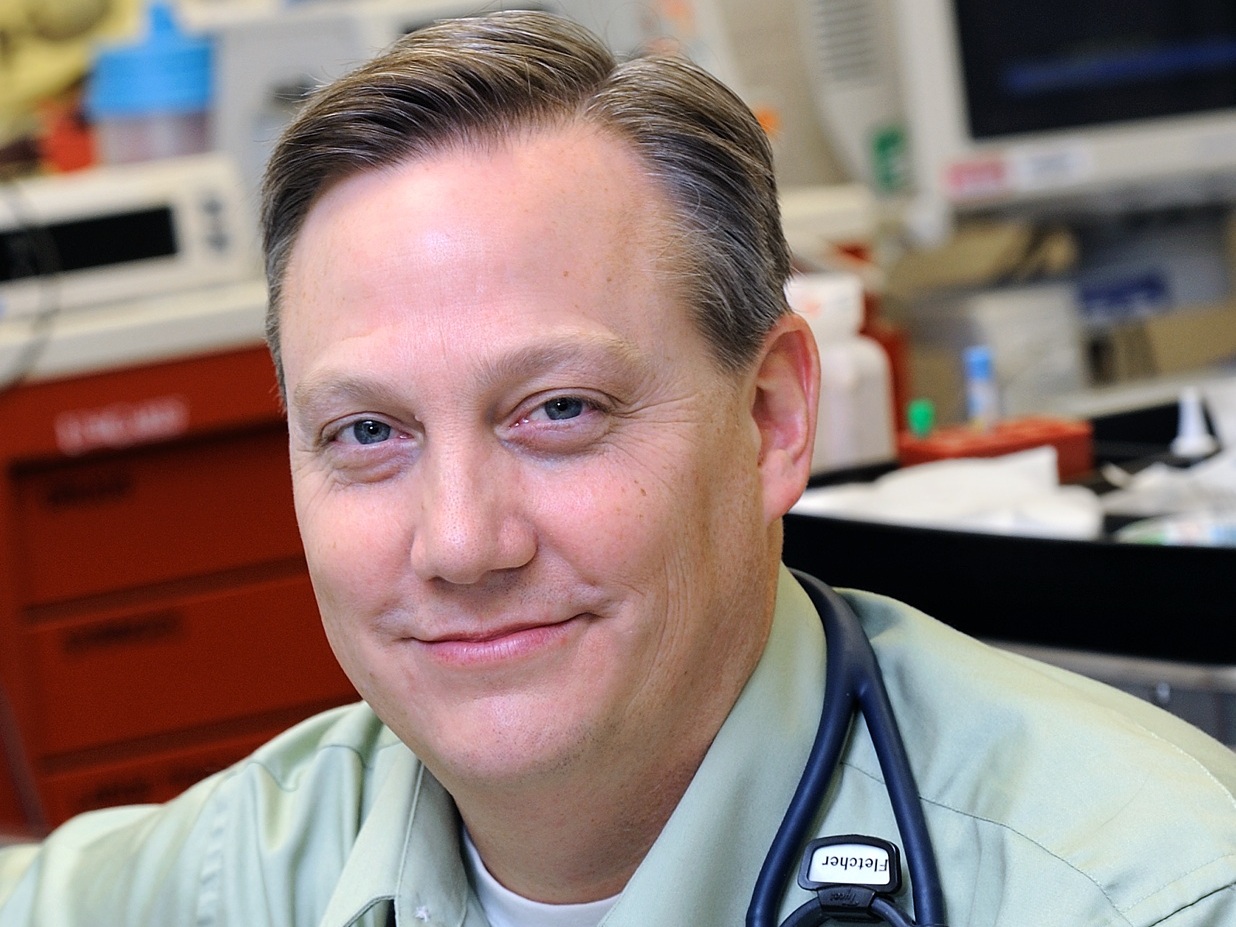
Dr Dan Fletcher offers sneak preview of his talks at this year's ECC Virtual Congress
It’s the telephone call that no one in the veterinary professions ever wants to make.
The one to an owner to tell them their pet has not come through the treatment they’ve been carrying out.
And now world-leading expert in CPR, Dr Dan Fletcher, is hoping to ensure far fewer owners get such devastating news by sharing his expertise at Vets Now’s ECC Virtual Congress.
Dr Fletcher, co-chair of the pioneering RECOVER – Reassessment Campaign on Veterinary Resuscitation – initiative, will deliver four lectures at the four-day Congress.
Two are on RECOVER guidelines, one is on coagulation and the other focuses on ROSC.

Running from November 4 to 7, and taking place virtually for the first time, the Congress will give vets and vet nurses an unrivalled opportunity to take part in presentations, lectures, debates and much more.
“There is a pervasive feeling in veterinary medicine that when it comes to CPR, it’s futile and not worth trying as we just never get them back,” said Dan, who has been at Cornell University College of Veterinary Medicine since 2006.
“But the data we have from the subset of patients who have acute arrests due to some external factor shows they have a very good prognosis. If people come away from my lectures feeling they will give it a shot, then we can make a big difference.
“And that means saving lives. How great would it be if we didn’t have to call that client who owns a two-year-old Labrador who had an anaesthetic event during a mass removal to say she passed away?
“Instead you could call to say, we had a little trouble under anaesthesia, but we got her back and she’s doing great right now’.
“If we can avoid 70% of those bad news calls, then I think we’ll have made a real impact.”
Although he is a leader in his field and helping change the face of veterinary medicine, it’s not a world Dan expected to be in.
“My career is a bit of an odd one,” admits Dan. “I started off as an engineer and my bachelor’s degree is in electrical and computer engineering.
“I went on to get a PhD in bio engineering before I saw the light.
“I was volunteering at a rehabilitation facility in Sausalito for seals and sea lions stranded off the California coast. I did it for eight years and that was my first experience working in a clinical environment with veterinarians.
“I loved that and while I liked what I did in engineering, I didn’t love it. So, I had a bit of a midlife crisis – about the age of 30 – and decided to take a whole different path and apply to vet school.
“And after that I did a small animal rotating internship where I became really interested in ECC medicine. When I had my first experience in a busy urban emergency receiving service, I fell in love with it.
“I loved the immediacy and not knowing what was going to come in through the door. I think I’m a bit of an adrenaline junkie, so I enjoyed the excitement of the ER.
“I found I could do surgery and a lot of other things, as well as neurology which had been my first interest.”
You might also be interested in:
Dan, who is past president of the American College of Veterinary Emergency and Clinical Care, went straight from his residency to Cornell where he has been at the forefront of pioneering initiatives.
That includes the Open VetSim platform.
“In our ECC course I would teach students about shock and stabilising patients and they could rattle off what to do,” said Dan. “But a few months later, when they came into the clinic and were presented with that patient, they were terrified to make decisions.
“But I found that with immersive simulation you can provide a bridge between the classroom training and the point where they are going to have to apply it to a patient.
“It provides a safe space where no patient is at risk, but they can try and manage a case in real time. It gives them an opportunity to make mistakes and learn from them.
“I always tell them that, looking back on my career, the lessons I never forget are where I’ve made a decision that turned out to be wrong.”
The sessions are held in a simulation laboratory using lifelike animal mannequins which let students listen to heart and lung sounds, use all the standard monitoring equipment and try and manage the case.
“They are in the simulation room by themselves and we’re watching remotely as things change and they have to deal with the patient,” said Dan. “They learn that if they do the wrong thing, they may lose the patient, and if they do the right thing, they can stabilise the patient.”
The RECOVER initiative, although separate, is intertwined as it’s used in Open VetSim for the CPR training.
Devised by Dan and a colleague in 2011, the intention was to provide standardised CPR training for use on pets.
“Human clinical guidelines would come out every five years and then veterinary advice would later come out based on that,” said Dan. “But no one had ever gone back and looked at it from the perspective of a dog or cat and how things might be different for them.
“So, after very extensive work, we came up with specific clinical guidelines in 2012 on how to do CPR on dogs and cats. There is a CPR algorithm for how to manage a patient who has had a cardiopulmonary arrest.
“We went on to develop online courses in basic and advanced life support and a certification process for veterinarians and vet nurses. And then they can come to the lab and work with the simulators.”
Dr Dan Fletcher"If people come away from my lectures feeling they will give it a shot, then we can make a big difference."
Dan travelled to the UK earlier this year and ran a special training workshop for Vets Now staff.
Along with veterinary technician specialist Kenichiro Yagi, vets and vet nurses learned CPR techniques based on the RECOVER initiative. As a result, 26 Vets Now clinicians were Basic Life Support and Advanced Life Support certified, as well as BLS and ALS instructor certified so they could further pass on those skills.
And it’s a wider awareness of the lifesaving possibilities that Dan will raise in his two lectures at the Congress.
“Many people are aware of the RECOVER guidelines, but some don’t even know they exist,” added Dan.
“So, the first goal is that increased awareness and just getting the word out that so much has changed and the outcomes can be so much better.
“Those in general practice settings or more primary emergency care dealing with the healthier patients who then have something that pushes them over the edge have the highest likelihood of successful resuscitation.”

